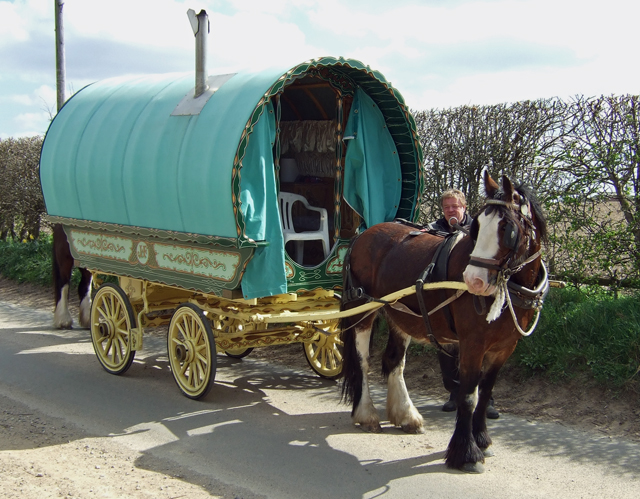University Centre Leeds work with GRT communities and TASO research

Recent research shows that there remain Higher Education (HE) ‘cold spots’, including marginalised groups who continue to have participation percentage rates in the single figures. Gypsy, Roma and Traveller (GRT) communities are one such group.
Young people from GRT communities are the least likely ethnic groupings to enter HE by the age of 19 – just 6.9% of Gypsy / Roma and 10.7% of Irish Travellers access HE by the age of 19 compared to around 40% of all young people. As such, they remain underrepresented in further education (FE) and HE, and there is a need to further develop approaches to addressing their needs.
Research by Go Higher West Yorkshire (GHWY) found that GRT young people:
- feel school staff lack understanding about their experiences and effects on education,
- do not trust schools, as with their parents, especially where families have generations of negative experiences,
- do not see Further Education (FE)/HE as safe environments, assuming they will be the same as school,
- are supported by their families, as education is important, but there is a lack of knowledge about HE, leading to a lack of confidence and a need to be assured of their physical and moral safety,
- do not have community role models in relation to education, but find they are important and impactful.
Addressing underrepresentation
In working towards addressing underrepresentation, and tackling the inequalities and challenges outlined above, University Centre Leeds (UCLeeds) has committed to working with GRT communities and we commit to the GTRSB into HE Pledge to develop trust, raise awareness of educational routes and options, and increase access to both FE and HE.
As part of our outreach work, we have established a relationship with community organisations working with GRT young people and have been delivering sustained programmes of outreach activity with young people who attend their centres.
Effective engagement strategies have included: establishing strong relationships with the organisations; developing outreach activities in consultation with the young people involved; ensuring staff involved have access to appropriate training and CPD to allow them to develop an understanding of the needs and barriers experienced by the GRT community; and collaborative approaches to delivery, including the use of student ambassadors as role models to co-facilitate outreach activities.
Evaluation pilot project
In addition to the above, UCLeeds were recently part of a small evaluation pilot project commissioned by The Centre For Transforming Access And Student Outcomes In Higher Education (TASO). The Widening Participation (WP) and Outreach team delivered an intervention with young people from GRT communities at Leeds Gypsy and Traveller Exchange (Leeds GATE). The aim of the intervention was to work towards challenging the education inequality faced by GRT young people and set out to develop positive relationships between education providers and GRT young people.
The cohort we worked with as part of this evaluation project were aged 9-16, are typically home-schooled after primary school, and were engaged in activities at the community setting which support their learning. We delivered a programme of activity every other week, with typically 11 participants attending. The workshop included a Media Make-Up Careers programme, Costume design and Careers in Baking programme.
To date, the programmes are very much designed in consultation with centre staff and the participants. However, these have largely been framed around vocations that are traditional within the community. As such, creativity is adopted to subtly introduce other routes and options, such as social media marketing of make-up businesses.
Outreach challenges and recommendations
While the WP and Outreach team has established experience in providing comprehensive programmes of access and participation activity, the opportunity to work with the young people in community settings where they are engaged presented several challenges which needed to be considered in the design and delivery of outreach sessions including the young people’s tendency to have aspirations of a vocational nature rather than prioritising educational qualifications, resulting in a need to provide more experiential learning opportunities; and increased importance relating to building trusting relationships with the young people involved to ensure engagement in the activities.
Throughout the intervention design, delivery, and evaluation, it was clear that the relationship between the Outreach Officer, community organisation, and participants was key for any chance of successful outcomes. To support this, engagement with community representatives and inclusion of community members and ambassadors as role models is recommended to increase the effectiveness of the intervention and subsequent relationship development among individuals. With strong, safe and trusted relationships in place, the impact for change is more likely and the benefits for participants and practitioners alike are endless.
Our findings will be published and made available by the end of the academic year.
Laura Macgregor, WP & Outreach Manager, University Centre Leeds
